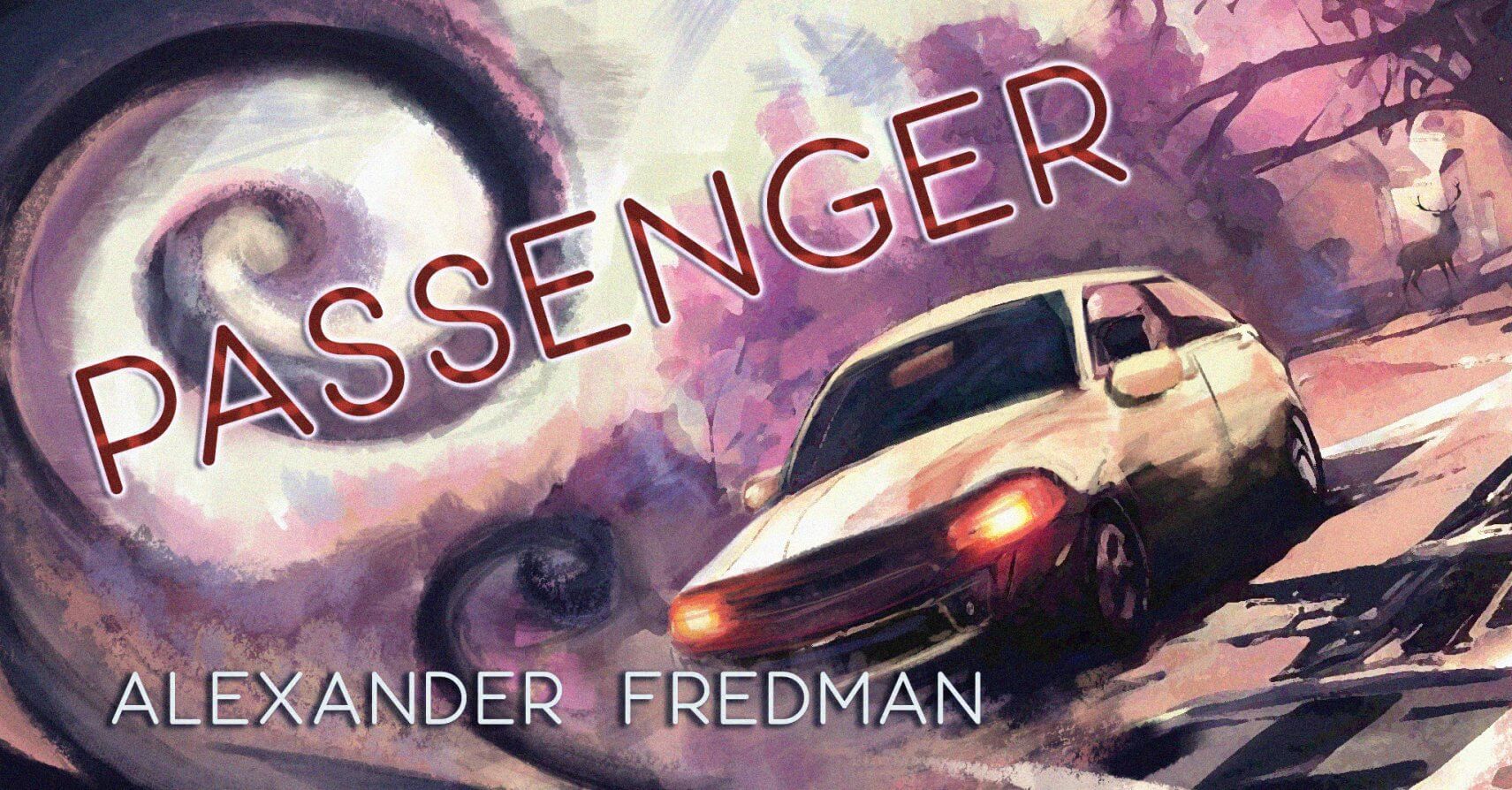Rain stopped falling somewhere after Albany. The hills were a new green and the road got slick as it dried. Sam saw the sky cut open. He looked at Lara. Her eyes were on the road. Good, he thought. Someone’s paying attention. Her narrow eyes. He almost recognized her. Last night he’d had everything to say. He could spell her life for her. Now what was left? But she was here. It was his idea to take the drive. He wanted to see a church he’d heard of. It had an old and forgotten sort of staircase. Nobody knew how it still stood.
Most of what they passed escaped memory. Rest stops, gas stations. Turn offs to little towns. The road spooled and repeated. Deer stood on the grassy margins, heads down and grazing. The car was a little old, a hatchback. It was silvery green. It was small and slow beside the semis. Lara got scared as she tried to pass the big trucks. Where were they even going? She had to really sink into the pedal. Cursed his car, though she’d insisted on driving. She’d drunk the same amount last night and slept even less. A steep rise came, the truck beside them struggled and dragged. They were clear for a moment. Climbing, gaining speed. A lift, a lightness, like pure joy. The car caught air and landed in a skid on the downturn of asphalt. Sam would remember that the road was black, that its blackness meant something. Lara would say they never caught air at all.
Black pavement like a patch of ice, though it was summer. There was no way to turn. The wheels spun and didn’t grab. When they did, when they found a dry or textured spot, they pulled the car slantways through the open right lane. A fissure opened in the earth. The car found it, slowing in the way that makes you realize how fast you were going.
Are you religious? she’d asked. No, he’d said, and only later did he wonder why.
***
The next day, the car was clawed out with a crane and loaded onto a truck. Sitting there, on his bed in the hospital room, papery white curtains, the smell of something about to burn—Sam wanted a look at it. He didn’t know if it was still his car. What that meant. He’d made the claim. So it was the insurance company’s now, he guessed. What use would they have with it? He figured he could find where they’d taken it.
The third junkyard said Yes sir and Sure you can come. But this isn’t a museum. You know that, the man said, and Sam nodded. Only once he’d hung up did he realize he didn’t speak. He only nodded, there on the hard blue plastic of the bed, the darkened room. Late light through the leaves. He thought he ought to know how to recognize trees. The curtains turned with the blown air. Little curtsies, hiding the pink sky outside.
He was hurt but not how you’d imagine if you saw the car. He saw it the next day. Nurses said he was supposed to stay, teasing. Then they saw that he was serious and he was expressly recommended against discharge. But they gave him the papers to sign when he asked. There was a cab waiting in the roundabout.
Everything there felt old already. The first he found was almost right. Same make, same model. But Jersey plates. But it had only been rear-ended. Sam was used to mirrors, doppelgangers. It all chalked up, but to what? Then the guy showed him the right car. The blood still where it was, on the seats and the rug, dry now. He could almost remember. The car was a tin can crumpled in your hand.
He thought he’d go for a walk and began but the pain came. A little bit down from the junkyard there was a river. Sam stood above it and looked at the water. He knew you wanted water in a time like this. Lara with tubes and wires. Water purling. Still spots, churning and aerated. It felt like winter but he didn’t know how. He always loved the snow for the day it stayed clean. The river was an emptiness before him. He tossed a rock in. He pictured her body floating there, but the rock just sank. He thought about death long enough to find it dumb.
He returned to the hospital as a visitor. Her first. He found her in a room just like his. Not like how he pictured. The tubes were beneath her gown. Her hair was combed in shiny striations. She could speak. Where were you? She said it like a dare. He thought she’d be pretty much dead.
From her room you could see an arc of road. The cars went on where they were headed, their yellow lights clipping parts of hanging trees. Giving them a moment of life, then moving on. Things only showed themselves so briefly.
Now what, he thought. This was no way to leave things. He walked the room, from window to bedside. In memory he’s alone with her. For another hour, two, as she slept. His hand on her leg. He shouldn’t notice the pattern on the sheets, little brown horses on round hills. The road outside. Cars moved so slowly from this vantage. More time passed between each. Strange how time does that, placing dark bodies in the driver’s seats. Carts in the hall. Nurses must’ve come to monitor things. Take her blood and make note of the numbers on the screens. That’s what they do. They make it so when you look back, when you think you’re a real fool for what you didn’t say, you think, No, I wasn’t alone. I wasn’t even really there.

